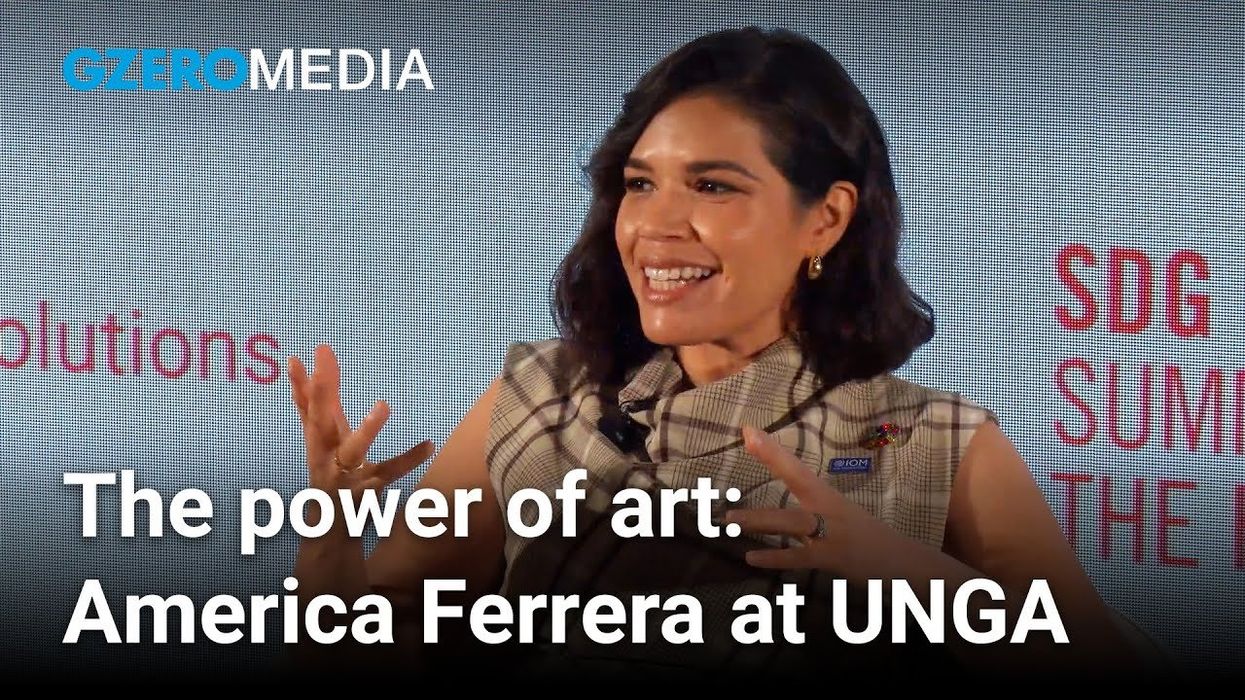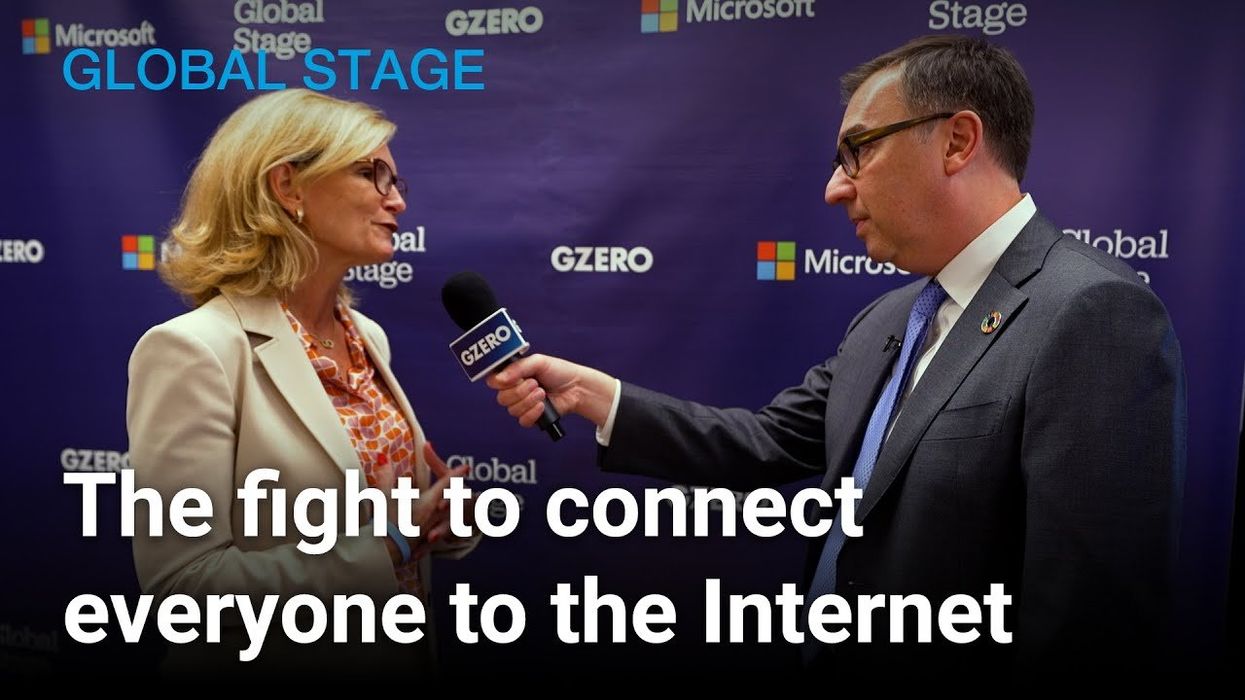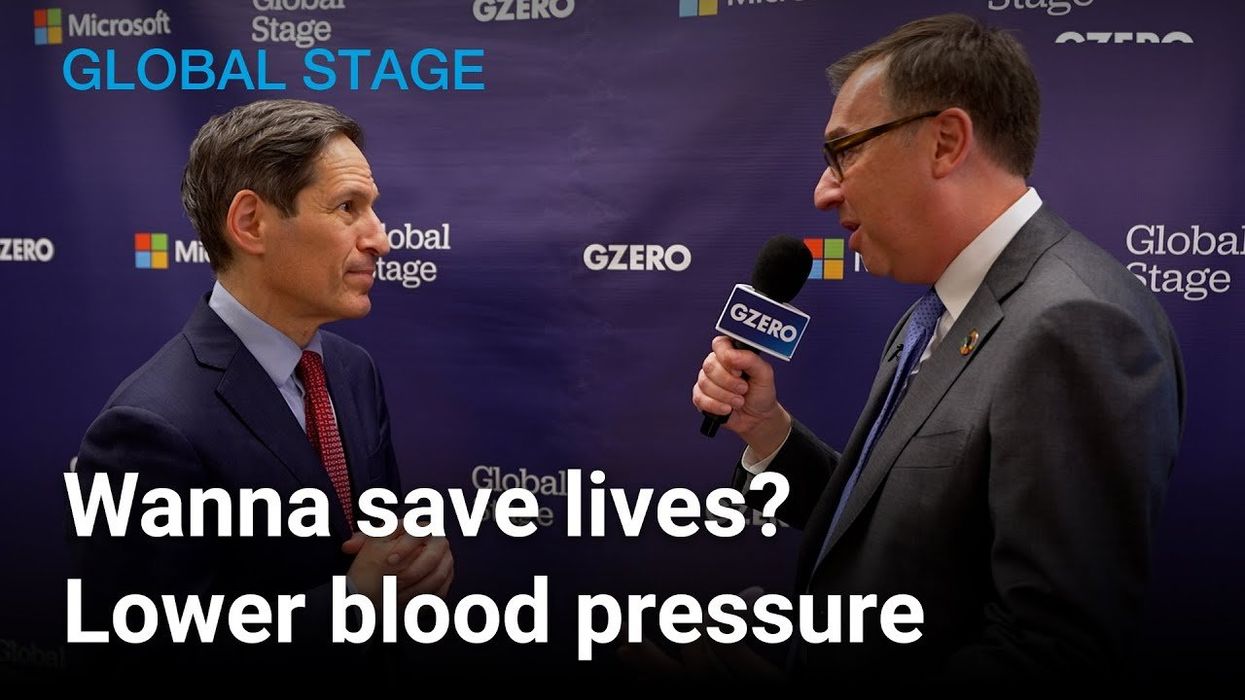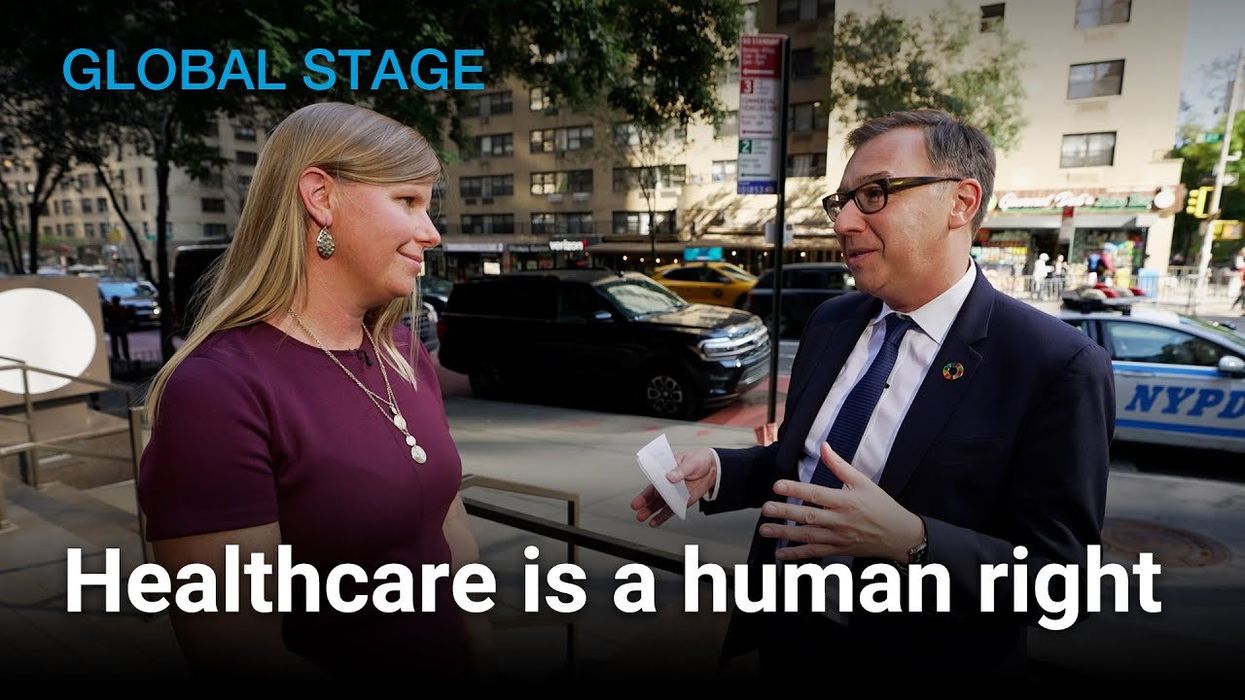United Nations
America Ferrera on Barbie's global impact and the power of storytelling
From the SDG Lounge inside the United Nations headquarters during the 79th General Assembly, America Ferrera reflected on the powerful impact of her monologue from the film Barbie, which captivated global audiences. Speaking with GZERO’s own Tony Maciulis during a broader discussion on the power of local and grassroots activism, Ferrera highlighted the unique ability of art to connect with people, contrasting it with political speeches, which can feel distant and agenda-driven.
Oct 02, 2024




